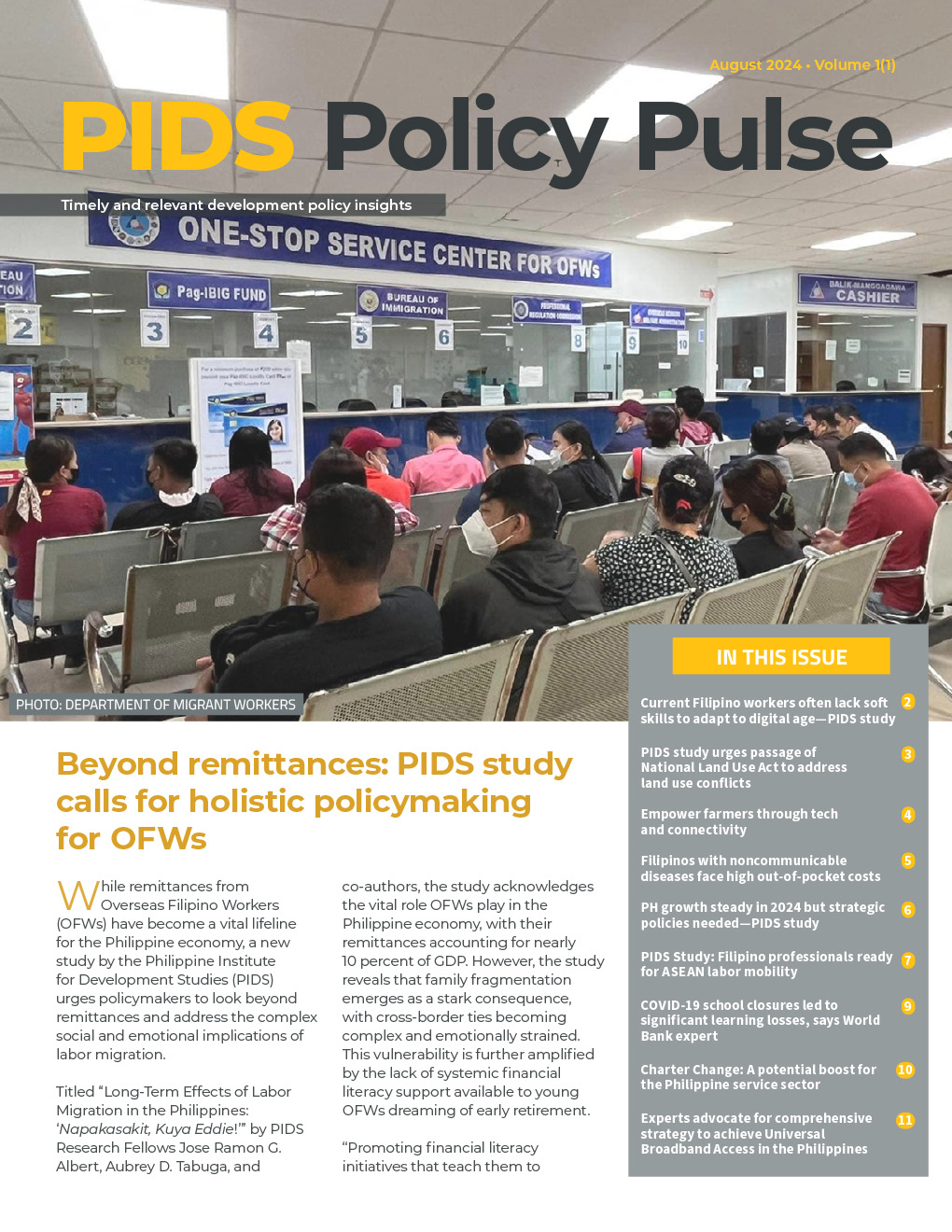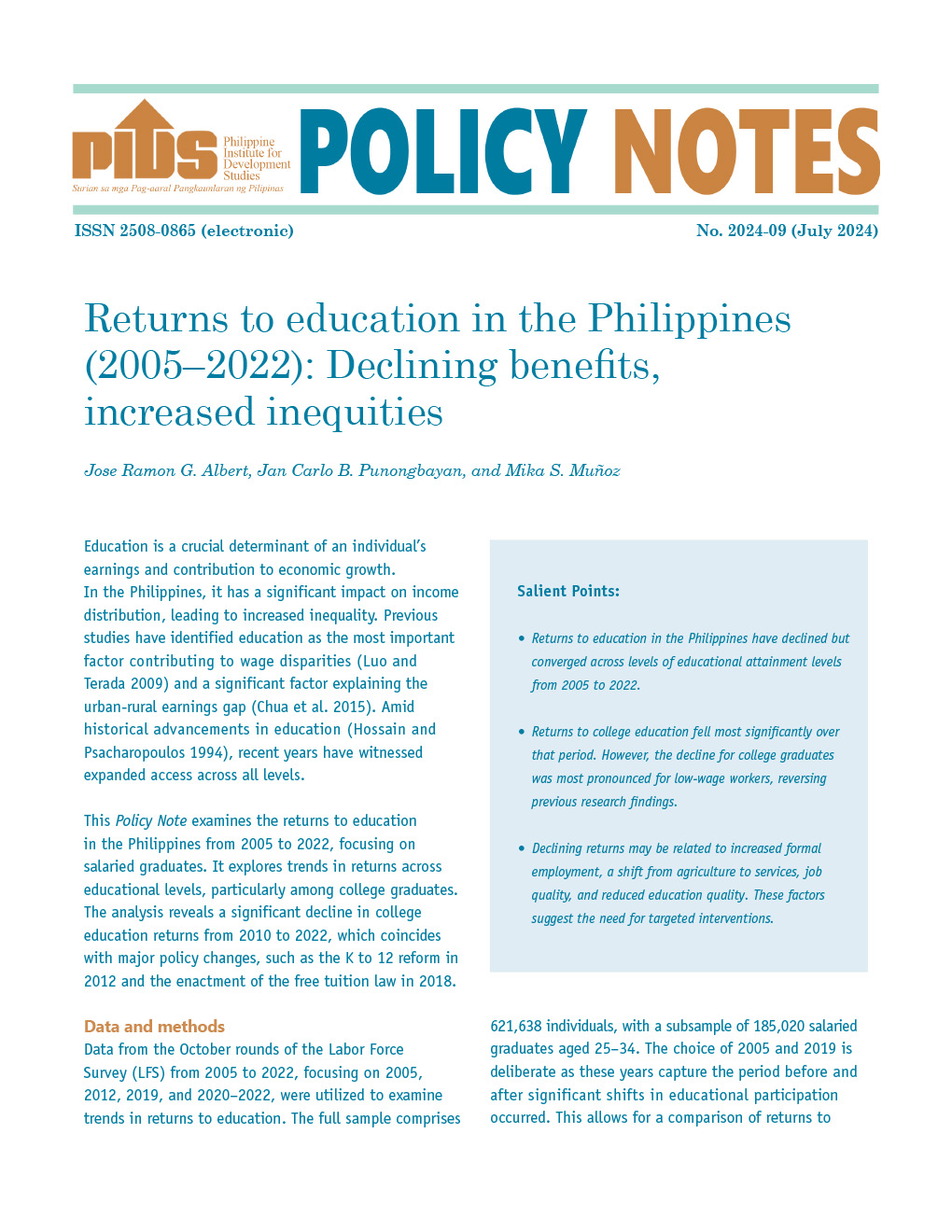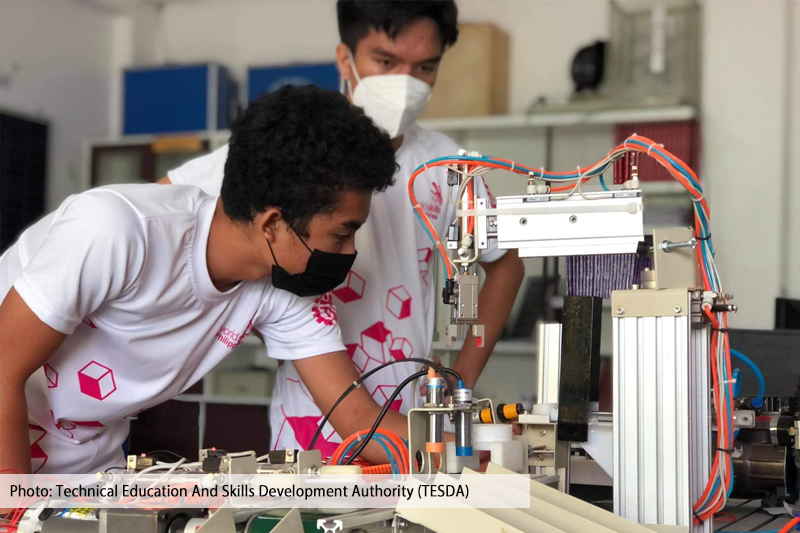The government’s active labor market programs (ALMPs) have provided short-term job opportunities to disadvantaged sectors, but the country must map out programs and policies that will promote private investments to generate more employment.
A recent study released by the state-owned think tank Philippine Institute for Development Studies (PIDS) stressed the need to boost growth of small and medium enterprises (SMEs) which have crucial roles in employment generation.
The study said constraints faced by SMEs must be addressed, including the lack of access to additional capital, unavailability or inaccessibility of raw materials and difficulty to comply with Food and Drug Administration (FDA) requirements to penetrate larger markets."These constraints are consistent with the macro studies on the reasons for the low private investments in the country,” it noted.
The study suggested that the country develop policies that will address these identified constraints to SME development. It is also imperative to undertake programs linked to the overall industrial policy of government. The government has established ALMPs to address persistent unemployment and underemployment despite high economic growth.
The community-based employment program (CBEP) is among the government’s priority ALMP that aims to contribute to the national goal of inclusive growth, poverty reduction and job creation, particularly in the countryside or the local community. Components of CBEP are government or public-private partnership infrastructure projects, social infrastructure such as livelihood and self-employment undertakings or projects, and emergency response income support projects.
The study also noted that the Philippine economic growth has yet to translate into higher investments specifically in the agriculture and manufacturing sector to have significant increase in jobs.
"A major factor to the sluggish growth in employment is the low growth of private investment,” it said.//











